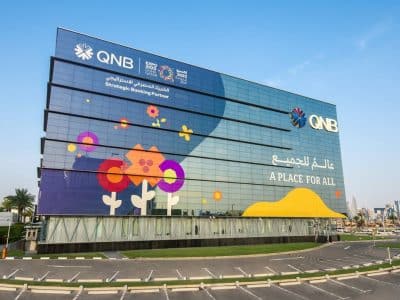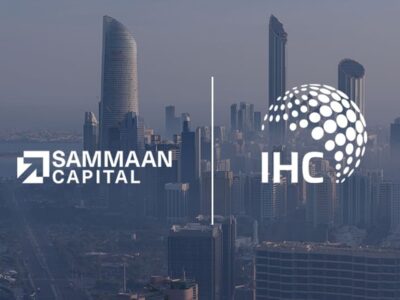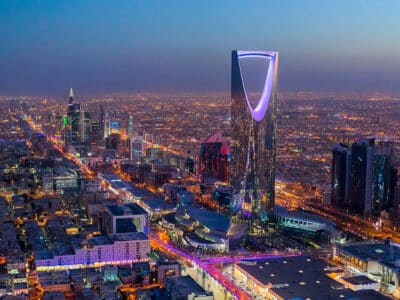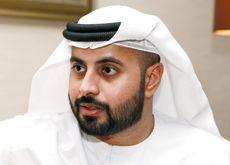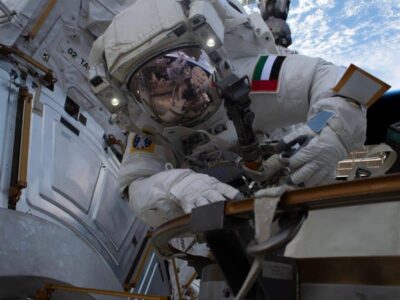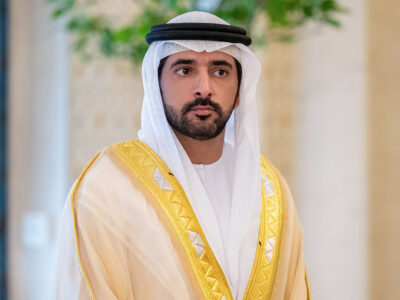HH Sheikh Maktoum Hasher Maktoum Al Maktoum, nephew of Dubai’s ruler, tells Claire Ferris-Lay why reports of Dubai’s debt have been much exaggerated.
While nearly all stock markets across the world were tumbling last week, HH Sheikh Maktoum Hasher Maktoum Al Maktoum was on the beach in the Maldives. News that state-backed Dubai World had asked to delay payment on its debt by six months didn’t concern the nephew of Dubai’s Ruler, HH Sheikh Mohammed bin Rashid Al Maktoum, in the least.
In fact, on the same day that Gulf markets opened for the first time following the four-day Eid break, Sheikh Maktoum, the CEO of the UAE-based conglomerate Al Fajer Group, was snapping up bonds for less than 50 percent of their value the previous week. He tells Arabian Business that he made a “significant investment” across three of the emirate’s government bonds the first day Dubai’s bourse opened following the news.
“You don’t bottom out on positive news,” says Sheikh Maktoum confidently.
“From a personal perspective I’m looking to invest in these bonds now because this is the last high yielding bonds. Some of the bonds are trading at minus 50 percent,” he adds.
Nakheel’s Islamic bond, which was originally due to mature on Dec 14, was trading at high as 110 the day before Dubai made its surprise announcement, according to Reuters data. The following day it fell by 30 points to a record low of 40 points.
Sheikh Maktoum, a well-known investor in Dubai’s real estate market and founder of the A1GP motorsport, says Dubai has finally hit its bottom, making it an ideal opportunity for investment in the long term.
“This is a great opportunity to pick up bonds on the cheap,” he explains. “If you buy the bond and if it is paid on Dec 14, you stand to make 100 percent. If they pay you in six months you still stand to make 100 percent return on investment.
“Even if they renegotiate and do a haircut reduction you stand to make up to 50 percent,” he adds.
Personal investment aside, the sheikh – one of the more outspoken members of Dubai’s ruling family – is keen to dismiss Dubai’s detractors saying that the emirate’s debt is actually small in comparision to many other countries’ debts amid the global economic downturn.
“If you compared the bailouts in Europe and the US, one European or US bank would equate all of the debt of the Dubai government and the entities beneath it.”
He adds that when Ukraine’s state-owned energy company Naftogaz Ukrainy defaulted on repayment of its Eurobond in September it was considered a “non-event.”
But as bourses reeled the world over, many feared a similar knock-on effect that the collapse of Lehman Brothers caused at the height of the crisis last year.
On Nov 26, London’s FTSE 100 tumbled more than three percent in its biggest one day percentage fall since March, while US crude fell to less than $74 a barrel the following day.
On Nov 30, the UAE’s first day of trading, the Dubai market closed down 7.3 percent, its biggest drop in a year while Nasdaq Dubai fell fifteen percent. Abu Dhabi’s bourse declined more than eight percent.
Sheikh Maktoum says the decision to delay the debt should have been viewed as a positive move.
“Restructuring debt in a downturn is a normal scenario. Many companies and governments have renegotiated debt and I view this as a positive outcome.
“When you restructure a company or a debt or anything else of that nature, you need some time to settle and restructure,” he continues.
“For me, it’s a very plausible scenario because I think what the experts or the people who are handling the situation are trying to do currently they are trying to handle the solution as a turnkey solution. They don’t want to do a short term fix and then be in trouble in another six months.
“I absolutely was not worried at all with this news. No, I didn’t expect it to come and when I saw it coming I didn’t expect it to have such a big reaction,” he adds.
He adds that the chief reason stock markets reacted the way they did was because many simply didn’t or don’t understand the way in which Islamic debt is structured.
“The mistake that a lot of people have done is just to throw the big numbers together instead of taking it piece by piece,” he explains. “If you separate the $80bn, approximately $20bn is government [and] $30-40bn is the purchase of P&O and other foreign assets.
“The other foreign assets have increased in value, some assets might still be under water but overall it’s a positive thing. For example, if you take Emirates Airline’s debt, its high quality debt in my book. If you take Dewa’s debt, I consider it high quality.”
So does he blame the media for the market‘s reaction, as many of the emirate’s other high profile businessmen have done?
He ponders the question. “First of all I question whether the media reports the news or makes the news. Well, I think in this case all of the media outlets around the world are reporting this.”
But while he doesn’t point the finger entirely at the world’s media he does cite one newspaper’s mistake as an example of misunderstanding.
“There was a report that basically [said] Qatar is going to sell its shares in Volkswagen to pay off Dubai’s debt. I was absolutely astounded by that. People don’t have all of the information nor do they understand; they just lump all of Dubai together and downgrade it.”
